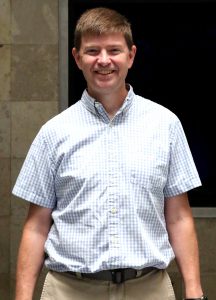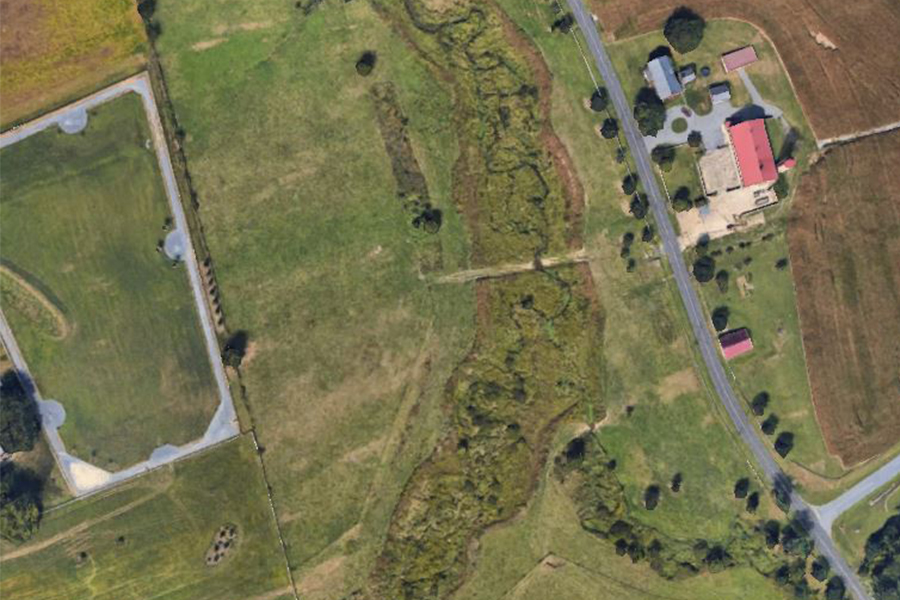Elizabethtown College Associate Professor of Biology David Bowne was an invited speaker by the University of California Davis chapter of SEEDS (Strategies for Ecology, Education, Diversity and Sustainability) club to lecture on the topic of floodplain restoration via the removal of legacy sediments.
His talk, “Understanding the past to inform the future: The impact of legacy sediments on aquatic ecosystems and their restoration,” explored the genesis of sediments and nutrient pollution in Lancaster County streams, which can be traced back to mill dams built hundreds of years ago by European colonists.
“This sediment came from slopes cleared of trees and collected behind the dams, which buried the pre-existing wetlands,” explained Bowne. “As the dams failed, streams were able to easily cut through the sediment and give us the stream structure that we see today.”
Along with several colleagues, Bowne tested a new method to improve water quality by removing the legacy sediment and restoring the floodplain wetland for Big Spring Run, a stream near Willow Street, Pa. He spoke with the UC-Davis students about this general process, the effects of this restoration on water quality, and his own role in investigating its effect on amphibian species.
The SEEDS club also has a chapter at Etown, of which Bowne was the founding advisor and now co-advises with Dr. Diane Bridge.

